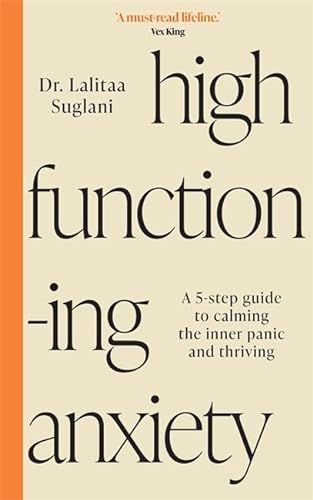. Yet they are fundamental facets of its more insidious, harder-to-spot, high-functioning variety, a condition more likely to plague successful women.
, is all about recognising the signs of this condition. "Often this need for perfection then manifests in a need for control, which can be really destabilising."
Fascinatingly, so many of the symptoms of high-functioning anxiety are found in women who often overachieve. There is often a strong correlation; underneath an outer shell of seeming ‘togetherness’ can lie an undercurrent of untreated anxiety. Indeed, often, when one is working hard and securing promotions, new deals, great results, it is easy to ignore signs that all may not be well. Just because the anxiety is not actively debilitating, doesn’t mean it can’t be causing long-term harm.
, because you're so focused on trying to keep yourself afloat after taking on all this responsibility and, ultimately, constantly fearing failure."
Suglani believes the root of this can often lie in our childhoods, where patterns of behaviour are learnt and ingrained. "There comes a point during these years where we start to build our behaviour based on the reactions of others," she says. "We're hyper-aware at that age, and we start to understand that in order to have love or receive love, that we need to act in a certain way."
this constant overactivity, that we believe we are meant to be feeling this way.
."
Frequently we take these worries home with us, and they spill into other concerns. Suglani notes that people with high-functioning anxiety can often suffer from health anxieties – sometimes imagined concerns and, a little more worrying, often issues directly caused or exacerbated by stress.
from our body – we're not feeling anything that's going on – but it comes out in other ways, frequently through illness. Your body is always communicating with you."
Often the hardest part of high-functioning anxiety is admitting that you have it in the first place. "Because people think you're a perfectionist, they think that you're so sure [of yourself]," she continues. "You get caught in this trap that people expect all of these things: people think you're the one that always does well in classes, and then all of a sudden you have this dysregulated nervous system that feeds on us not giving our body what it needs, which is to slow down and check in with ourselves."
A high-functioning tendency can often lead us down inauthentic pathways, notably in our careers. So much of this anxiety is fuelled by a need to project as coping, as perfect and – of course – as pleasing others; parents, teachers, bosses. "We live based on what we think others want from us," Suglani observes, saying she treats innumerable clients who get to a certain point in their career and ask: "Why am I a lawyer? Why am I a banker? Who am I doing this for?"

."
Once you start to unpick the reasons behind your behaviour and your tiggers, you can begin to break bad habits. They key is to reinstall boundaries and establish a work-life balance. "This could be as simple as not immediately saying yes to an extra project at work. Just take a moment. Ask if you can check your diary and get back to them – that's a useful response. It gives you space to check what else you've got on before you commit," she says. "Then it's just about being open and honest, and sitting with and being aware of the emotions that come up. If you're feeling guilt, sit with it. Ask yourself: what's really going on here?"
by Dr Lalitaa Sunglani is published 28 May.



Post a Comment
0Comments